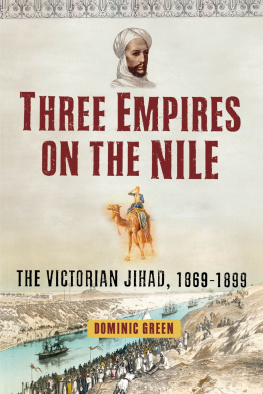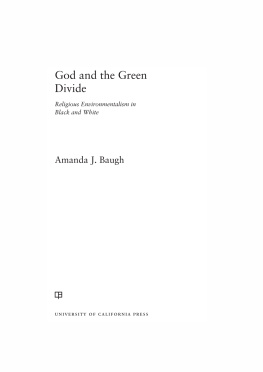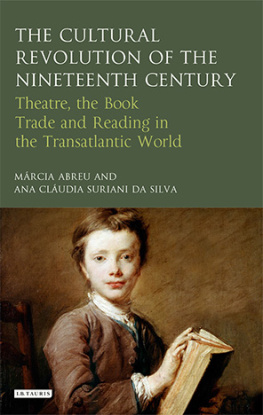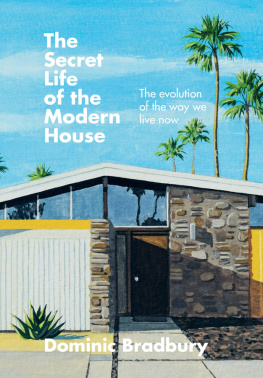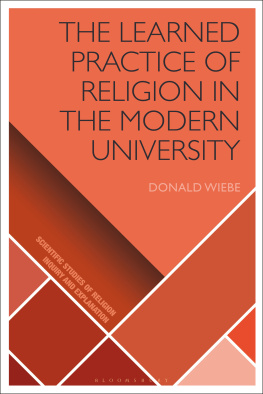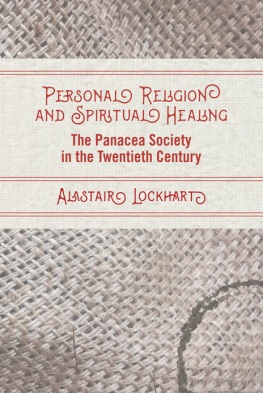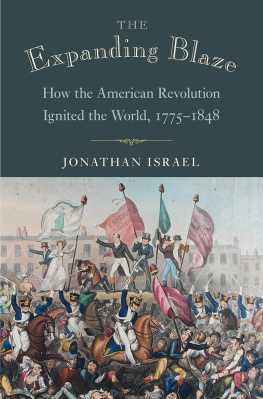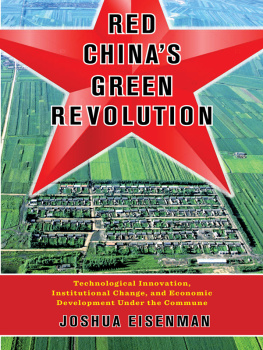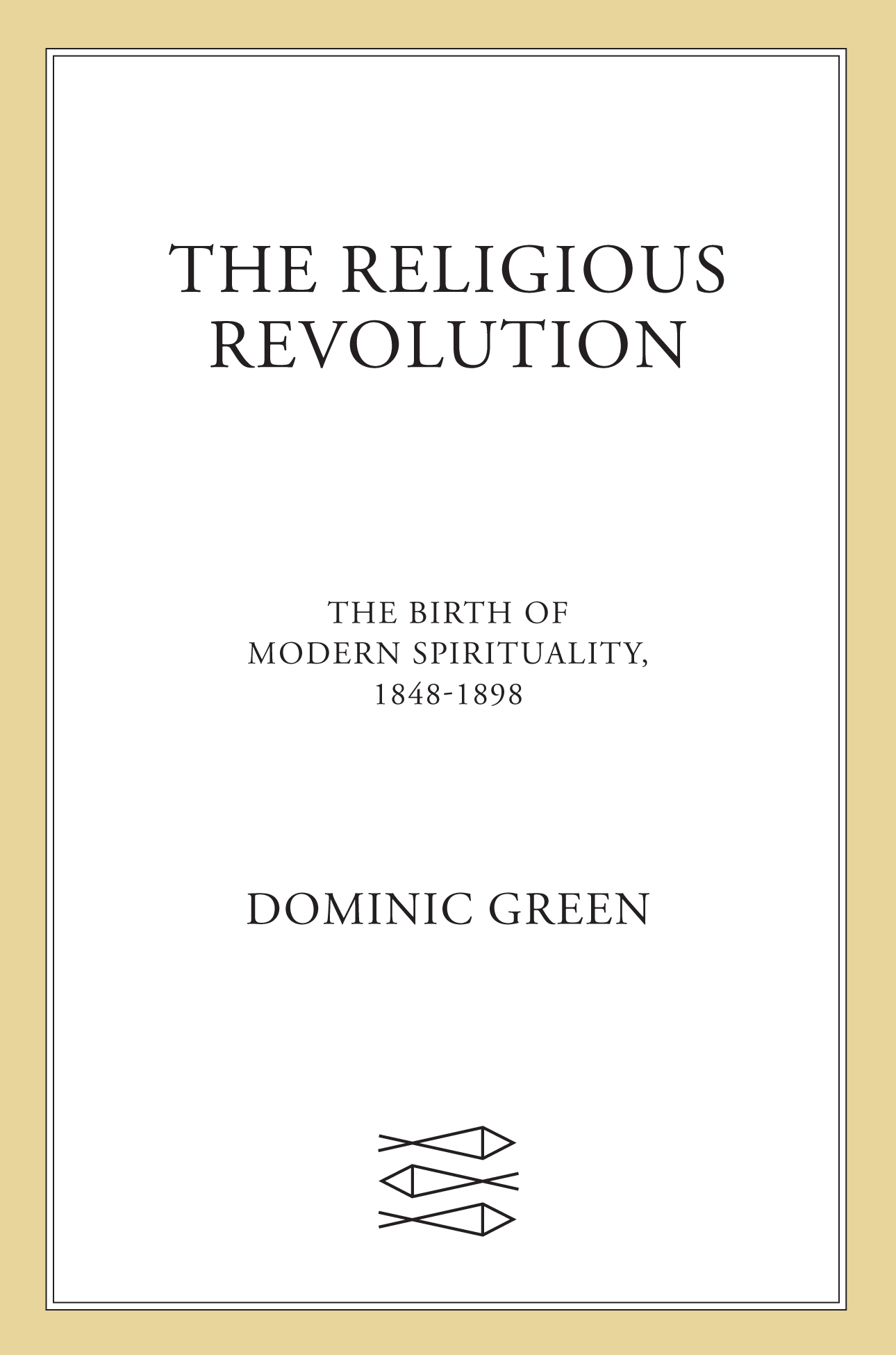Contents
Guide
Pagebreaks of the print version

The author and publisher have provided this e-book to you for your personal use only. You may not make this e-book publicly available in any way. Copyright infringement is against the law. If you believe the copy of this e-book you are reading infringes on the authors copyright, please notify the publisher at: us.macmillanusa.com/piracy.
To Maja
We know that the world was made at one cast; what we find in ourselves, we recognize all around us. Whatever man sees, that he has a key to in his own mind The religious impulse is the most revolutionary principle in human experience, uplifting and impelling the man beyond himself. Every nation of the globe is in our day, whether willingly or reluctantly, holding up its sacred books and traditions to our eyes, and we find in our mythology a key to theirs, and in our experiences a key to their experience.
Ralph Waldo Emerson, Natural Religion (1867)
Scything through sleeping woods, deaf to birds and blind to flowers, the Paris express thunders on through northern France. The earth shakes, the air sings, the beast breathes black smoke. Through the carriage window, the American passenger sees the old world in magic lantern images: a church spire and a flock of cottages, a stream and a green coppice, cattle and farmers like figures from a forgotten allegory. Overhead, a black spool of telegraph cable carries hidden code, a stutter of prices, politics, and gossip for the evening papers. The passenger feels his body vibrate.
A bishop blessed the first train to travel on this line. A band played The Song of the Railways, music by Hector Berlioz, lyrics by Jules Janin:
We, the witnesses to the marvels of industry,
Must sing to peace, to the king,
To the worker, the country,
And to commerce and all its benefits.
From Boulogne on the bare coast of Picardy, through Lille and Arras where cotton mill chimneys jostle the turrets of medieval belfries, down into the valleys of the green Somme and sleepy Oise, past the Gothic cathedral of Saint-Denis and the bones of dead kings, on through the villas and factories, vegetable plots and grubby tenements, grand avenues and lightless slums, the train carves a straight and graded line through the rippled surface of Earth and its topsoil of human settlement until, in an ecstasy of brakes and whistles and steam, it stops.
From Boulogne to Paris fifty-six leagues, seven and one-half mortal hours: the power and haste of modern life. A tall man with a clerical air, a face of angles and planes, and dark hair turning to gray steps onto the platform. It is May 1848, the Spring of Nations, and Ralph Waldo Emerson has come to Paris.
The sooty air is moistened by an unusually wet and cold spring. These are Europes Hungry Forties. The crops are rotting in the fields, and food prices are rising. There are mobs in the cities, and famine is in the country. There is mass starvation in Ireland, war in Italy, and revolution in the German states. Emigrants crowd the ports; cholera crosses to the New World in steerage. In Paris the streets are bare. Yet another French revolution has begun. The plane trees have been chopped down for barricades.
It was an age of grand ideas and great expectations, and it forged our ecstasies and discontents. An age fascinated by speed and awed by machines. An age of evolutionary biology and religious fundamentalism, of global powers and tribal politics. An age of glowing cities and traditions lost, of the lone genius and the huddled masses, of restless tedium and the torments of hope. An age that believed in the infinite advance of knowledge, endured the infinite emptiness of a universe without purpose, and succored a pantheon of new gods.
That age created global markets and global consciousness, but also class war and scientific racism. It dreamed of peace and genocide, chemical cures and chemical weapons. It overthrew the ancient authority of church and crown for the volatile gambles of democracy and the market. It freed women, slaves, and serfs, but it harnessed children to its factories and subject peoples to its empires. It was the New Age, the era of democracy and emancipation, but the emancipated yearned to elect new Caesars. Its vocabulary is ours: spirituality, evolution, ecology, crisis, culture war, diversity, Darwinist, fundamentalist, neurotic, organic, sadism, masochism, atomic power, karma, reincarnation. So are its pleasures: the department store (1838), the motor vehicle (1870), the telephone (1875), the moving image (1895). And also its consolations of knowledge and escapism: thermodynamic entropy (1851), the germ theory of disease (1870), synthetic opiates (1874), pornographic films (1895), the contents of the atom (1911). And so are its ideals, the transcendent principles that give meaning to life by appearing, like gods, to exist outside the world they create and explain.
Religion featured in few of these innovations but religiosity thrived amid them all. The age of scientific and technological discovery was also one of frantic religious creativity. Today, the worlds largest democracies, the United States and India, are the worlds most religious democracies. The market in spirituality is a multibillion-dollar industry, from package-tour pilgrimages to mail-order crystals. Two hundred years ago, perhaps a handful of Christians believed in reincarnation, and if they did, they were heretics. Today, at least a third of Americans believe not only that they have a soul that survives death, but also that it previously belonged to someone or something else. We want new cars and old souls: a life technological, founded on scientific rationality, but understood through our eternal wishes for meaning, endurance, and transcendencethe overcoming of mortality. This speculative realm of dreams and nightmares is the perennial province of religion, art, and sexuality. It is also the modern province of politics. As the net of technological civilization covered the globe, both provinces fell within the new empire of spirituality, the distinctively modern experience of inner life as comprehensive and near simultaneous, novel in its infusion of biological ideas and technological metaphors, yet strangely familiar, even archaic.
We became like this in the late nineteenth century, when mass communications, mass politics, and global markets converged, transforming lives across the world. People, products, and ideas moved faster and farther than ever before. Travel and communication became standardized to Greenwich Mean Time. English became the global argot of trade. The erosion of inherited beliefs and customs, and the eruption of new ideas and experiences, forced a radical reordering of values. Nietzsches death of God was only an obituary for the Christian deity, a clearing away of the old so that new ideas of divinity could flower. And reports of the Almightys death turned out to be greatly exaggerated. Certainly, the established religions lost ground, especially where new ideas and institutions mimicked the old forms. But the weakening of organized religion liberated the religious impulse from the inherited restraints of hierarchy and dogma. Rather than atrophying like a superfluous evolutionary inheritance, religiosity surged in hypertrophic vigor.
The machine pulse of urban life and the rational proofs of science cracked the old barriers between the sacred and the profane. As the religious impulse flooded into all aspects of individual consciousness and collective endeavor, it sanctified all with transcendent significance, and disturbed the rule of Brahmins in Boston as in Bombay. Suddenly the heights of religious experience were no longer the privilege of hereditary male elites. Nor was religious joy the meager fruit of renunciation, abstinence, or retreat. Like Napolon, who crowned himself emperor when the pope wavered, the modern individual personalizes his or her beatitude. And like Napolon, who wanted to conquer India but never went there, the modern individual seeks to combine West and East, rational and sublime, personal and collective, science and spirit. As Emerson exhorted Margaret Fuller, Write your own Bible!


